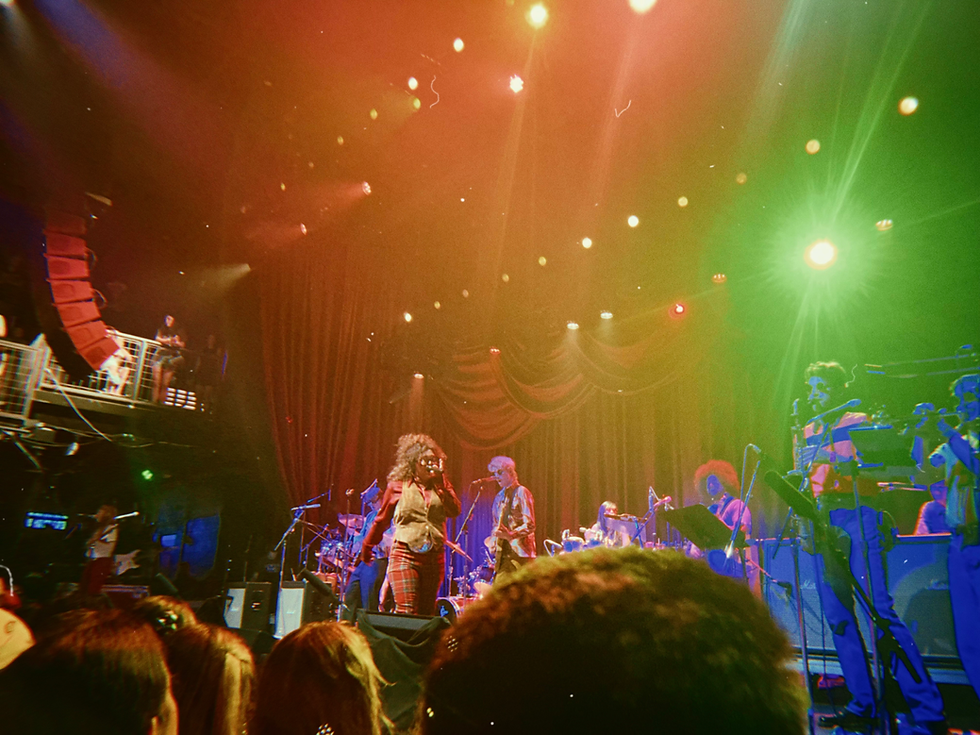Escape Into the World of Music: How Artists Transporting the Listener Helps Everyone Involved
- Andrew Doucette
- Jul 26, 2020
- 5 min read
It’s hard to stay positive during these times. Trump’s always spewing some sort of hate or harmful rhetoric that’ll prolong this pandemic even longer. People are getting abducted by unidentifiable, federal police in rental cars in Portland. We’re more divided as a country than any time after outlawing slavery. Simple science has somehow become a political issue and a topic for discussion. Terrible things have been impossible to escape recently.
But yet, we can’t seem to get enough of it.
I can’t speak for other people, but I know I’ve fallen into this rabbit hole more than what’s healthy. I can just mindlessly parooze different social media platforms and see one of my favorite artists ever having a mental breakdown, or see people argue that pizzagate is a real thing four years after it was factually proven otherwise. It’s an unfortunate tactic that my brain has somehow chosen to do once again to avoid online school work.
Seeing negative and harmful information this much isn’t something that’s good for the soul, mind, or spirit. Even as I’m writing this, I can feel the urge to check my phone or open a new tab to what will probably be a new atrocity that’s happening (which this time is a shooting at a funeral home in Chicago). It’s something that I’m sure quite a few of us are dealing with to some extent.
For me, it’s a product of too much free time and escapism. While the online class and reading the books for it take up a good chunk of time, staying inside has been a challenge, mentally. I didn’t think it would, but the urge to do something with my life is there. Only problem is, there’s not much I can do to get further down the rabbit hole of the career I want right now, since a large part of the music industry is on pause right now and many people have no income.
What it does leave is time to lose yourself inside of albums. You become one with them. You just lay there with your headphones on, fully engulfed into the world of the music. It transports you to another world, to someone else’s head, to another place. And there’s no artist that captures this feeling better than Frank Ocean.

Frank’s music captures the overarching depression and despair that much of the millennial generation carries. Even before the current pandemic and hate fueled president of the last few years, there is still the rocketing cost of living, global warming, shootings everywhere from schools to churches, rising college costs, a minimal job market, and much more, so it’s not surprising that mental health problems have skyrocketed with this new generation.
Blonde is Frank’s second album, and it forgoes everything that his debut was. There are spots on Blonde where he goes for many songs in a row without there being much more instrumentation than a guitar and a few synths. He tumbles through relationship struggles, feeling alone, numbing the pain, but it all has a feeling of depression and anxiety that comes along with it.
The soft guitar and vocal performance on “Seigfried” is enough to have anyone emotional, but the lyrics about having tried hell and his bravery being gone just brings it over the top. Even the fan favorite and accessible “Nights” has these elements of depression and searching in them, with the bridge, “Every night fucks every day up. Every day patches the night up.” Everything is cyclical, whether it be a relationship, depression, drugs, etc. It all has it’s high points, and low points. Even if you're someone like me and has never experienced the majority of what Frank talks about, he brings you into his world with this album. It’s an invitation into his head and to feel what he’s felt. While he lives in silence, his music speaks volumes.
One of Frank’s influences, D’angelo, also brings the listener into a different world with his music. Instead of being an emotional and supportive world like Frank’s, D’angelo brings the listener into a sonic landscape with his album Voodoo. No longer are the evocative ballads of Blonde, but rather, they’re replaced by grooves and layers of instrumentation.
D’angelo transports the listener to a space instead of a mind. Voodoo invokes the feeling of a hazy recording session. It’s a big studio, but there’s plenty of the best musicians in the world in there. There’s an ever-persistent layer of smoke that permeates the room. The musicians are all sitting like a normal band would, but they’re not playing actual songs, just improvising. Everyone’s just laughing and conversing with each other in the background while the few musicians and D’angelo just mess around on their respective instruments until something clicks, and all the sudden it’s a new song.
It’s that laid back, family, and hazy atmosphere that this album transports the listener to. You lose your sense of time in it. You start it and sink deeply into it, but all the sudden realize that it’s over and almost 80 minutes are gone just listening to the best musicians of the time play their grooves. It’s not emotionally challenging like Blonde, but an escape from reality. An escape into a world of groove.
Escapism isn’t always the healthiest thing to do, but it’s a tactic that many of us are doing right now. Sometimes artists even do it to themselves with their albums. They create worlds with characters, storylines, places, all within their music; and no artist better exemplifies this than Janelle Monae.
For the first decade of her career, Janelle constructed the life of Cindi Mayweather, Android #57821. Cindi Mayweather’s story starts off with her falling in love with a human, Sir Anthony Greendown. But unfortunately for her, a droid falling in love with a person is illegal in Metropolis, and now she must go on the run and evade bounty hunters trying to catch her.
It became hard to distinguish what was Janelle Monae and what was Cindi Mayweather. She became the character in her music. The Metropolis EP, The Archandroid, and The Electric Lady are all a part of this evolving story. Cindi becomes a spiritual leader against the oppressive government of Metropolis, a music star in her own right, tells stories of being on the run, and much more in these projects.
As with many created worlds, Janelle blends her real life with a fantasy world. Unfortunately, Janelle decided to abandon her story of Cindi Mayweather to make a personal album, Dirty Computer. She’s stated over and over that this is the album she’s always wanted to make. Even in her Emotion Picture for the album, it’s right in your face with her having to repeat that, “I am ready to be cleaned.” She felt that she had to clean herself before being presented to the world, but now it’s “about embracing all those things that make you unique, even if it makes your own self uncomfortable.”
Cindi Mayweather’s story had helped Janelle feel comfortable to be honestly and truly herself, a pansexual woman of color. Which is why I think is where living inside albums can be beneficial. Even if they’re fictional worlds, someone bringing you into their mind, or bringing you to a different physical place, they can still leave the listener with new insights on their own lives.
While Janelle’s albums are fictional, they deal in self discovery and making the listener empowered to be who they truly are. Blonde is made to comfort the listeners and provide someone for the listener to relate to in times of trouble. Voodoo provides a musical escape into a luscious and murky landscape full of alluring grooves and melodies. While each artist accomplishes the goal in different ways, they all help better people's lives and provide a sort of therapy for their listeners in these trying times.



Comments